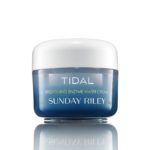Skin care brand Sunday Riley wrote fake Sephora reviews…
 We have all worried about it. I love reviews for helping me make buying decisions. It is great to have information from real customers who have experience with a product. But are those reviews real? We have written about it before right here in Teach the 4 Ps. We also have an Ethical Dilemma on fake reviews in Essentials of Marketing.
We have all worried about it. I love reviews for helping me make buying decisions. It is great to have information from real customers who have experience with a product. But are those reviews real? We have written about it before right here in Teach the 4 Ps. We also have an Ethical Dilemma on fake reviews in Essentials of Marketing.
It came up again recently when it was reported that “Skin care brand Sunday Riley wrote fake Sephora reviews for almost two years, FTC says.” (CNN, October 23, 2019. As consumers increasingly rely on reviews as a source of buying information, there is a growing incentive for sellers to add more information. This story about Sunday Riley is particularly egregious.
This is a major concern for retailers or other intermediaries that add value by providing reviews. For Amazon, good and bad reviews provide valuable information to consumers — but fake reviews threaten trust in the system. Consider, a study by a British consumer education group which found “Many popular tech products on Amazon are boosted by fake reviews, an investigation finds,” (CNN, April 16, 2019). Even travel site like TripAdvisor faces the same concerns, “TripAdvisor defends itself against claim that up to one in seven reviews might be fake,” (CNN, September 6, 2019). For Amazon and TripAdvisor their business models rely heavily on reviews. These intermediaries do not pay customers to provide this information — so it is low-cost to add — but it is one of the main reasons many customers use the sites. Consequently, Amazon and TripAdvisor use artificial intelligence technology to try to weed out fake reviews.
We cover online reviews and related ethical and legal issues in Chapters 13 and 16 in Essentials of Marketing.
